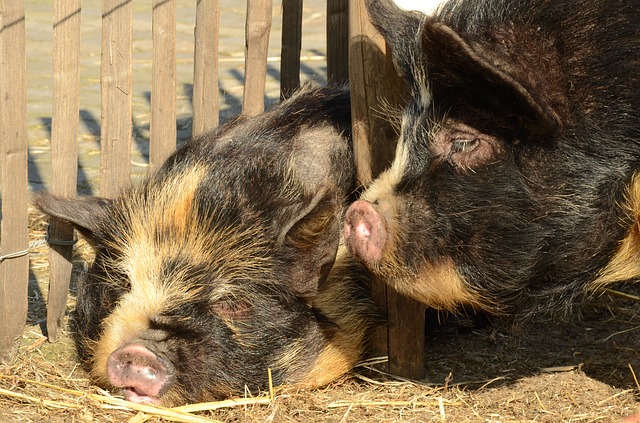Pigs aren’t just close to humans in terms of anatomy; they can be optimistic or pessimistic, too. And pessimistic pigs, apparently, are more affected by their environments, a new study finds.
Science has already proven that humans process and react to information differently based on their mood. Someone who has been having a bad day, for example, will tend to expect worse results when facing a situation that could go either way. But if the person is feeling more upbeat, he or she will tend to look on the bright side.
Moods, combined with basic personality, influence a person’s thinking patterns that may sway judgement, the Los Angeles Times reports.
Researchers have focused on cognitive bias in animals to study mood, but the results have been inconsistent. The authors of the study theorized that this may be because there have been no analyses of the interaction of personality and mood – so they decided to do just that.
A team from Great Britain probed this personality-mood relationship in 36 domestic pigs. Pigs are known for their intelligence, and the scientists tested what kind of personality each pig had based on how they behaved towards an unknown object. The proactive pigs were more active and less flexible, while the reactive pigs were more passive and more flexible.
They also tested cognitive bias by training the pigs to recognize two bowls in separate corners of the room: one held chocolates, while the other had bitter coffee beans. All of these were coated in sugar to make them unrecognizable until the pigs got close. Then the researchers started placing more bowls of both chocolate and coffee in random areas around the room.
Before the tests, the pigs were put in either of two lodgings: one had a basic solid floor and slatted area, while the more “deluxe” one had deep, comfortable straw and more space.
The researchers discovered that the proactive pigs gravitated towards the bowl in the middle, even if they weren’t sure what was in it, regardless of the quality of their room. Being stuck in more economic accommodations did not affect their optimism.
On the other hand, the reactive pigs were more optimistic about finding chocolate in the middle bowl if they were housed in a more comfortable room, and more pessimistic if they were in the basic dwellings. In short, reactive animals are much more influenced by their surroundings, and their mood is more likely to affect their choices.
The researchers state,
These results suggest that judgement in non-human animals is similar to humans, incorporating aspects of stable personality traits and more transient mood states.
This could explain why previous tests of cognitive bias in animals did not have definite results, they add. “Accounting for personality differences between individuals may reduce some of this otherwise unexplained variation, making cognitive bias test outcomes more reliable and robust.”
The study was published in the journal Biology Letters.
























